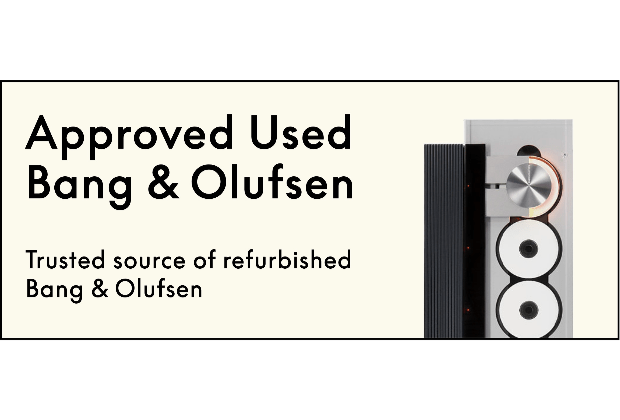Home › Forums › Product Discussion & Questions › BeoVox › Beovox S45-2 blown tweeter successful repair. What caused it?
- This topic has 2 replies, 2 voices, and was last updated 2 years ago by
louislemas.
-
AuthorPosts
-
20 August 2022 at 09:08 #37130
Last year I saved a pair of Beovox S45-2s from going to the tip.
I managed to successfully fix a woofer with a dislodged magnet – using tutorials from this site. I’ve enjoyed listening to them for a year, but thought I would give them an upgrade by replacing the (original) capacitors.
I ordered this kit and successfully changed all of the capacitors in one speaker without hiccup. I left all of the old capacitors in the other speaker for a couple of weeks so I could compare the sound. Once I was satisfied that the speaker with new capacitors sounded better, I replaced the capacitors in the other speaker as well – again no hiccups as far as I could tell. I put it back together, plugged it into the amp (whilst switched off) – but then found there there was no sound coming from the tweeter. The woofer and filler worked fine.
There was a discontinuity across the tweeter terminals. I thought I’d document how I was able to successfully repair the tweeter (PHILIPS AD-0163 T8), in case anyone else has the same issue…
Upon closer inspection of the voice coil, I noticed there was a burn mark on the cardboard where the wire is soldered to the coil. Using tweezers and patience I was able to scrape and peel the glue back to reveal the wire leading to the coil. I then unravelled the coil slightly to allow enough length to solder. I was pleased that I was able to achieve all of this without losing any length in coil or wire. Once soldered I glued the coil and wire back into place.
Now that the tweeter is showing continuity again, I don’t want to connect it back up to the crossover before I work out what caused it to blow. I would appreciate any ideas about what could have caused this and how I might be able to diagnose without blowing the tweeter again. If it is a faulty capacitor, which one is it likely to be and how can I diagnose this? (I just want to mention that I have no reason to believe that beoparts-shop.com supplied me with a faulty capacitor and have been happy with their service so far). Should I connect some fuse wire in series with the tweeter for testing purposes – if so, what rating? I am fairly confident that I soldered the new capacitors in the correct places, but have included pictures of the crossover for proof.
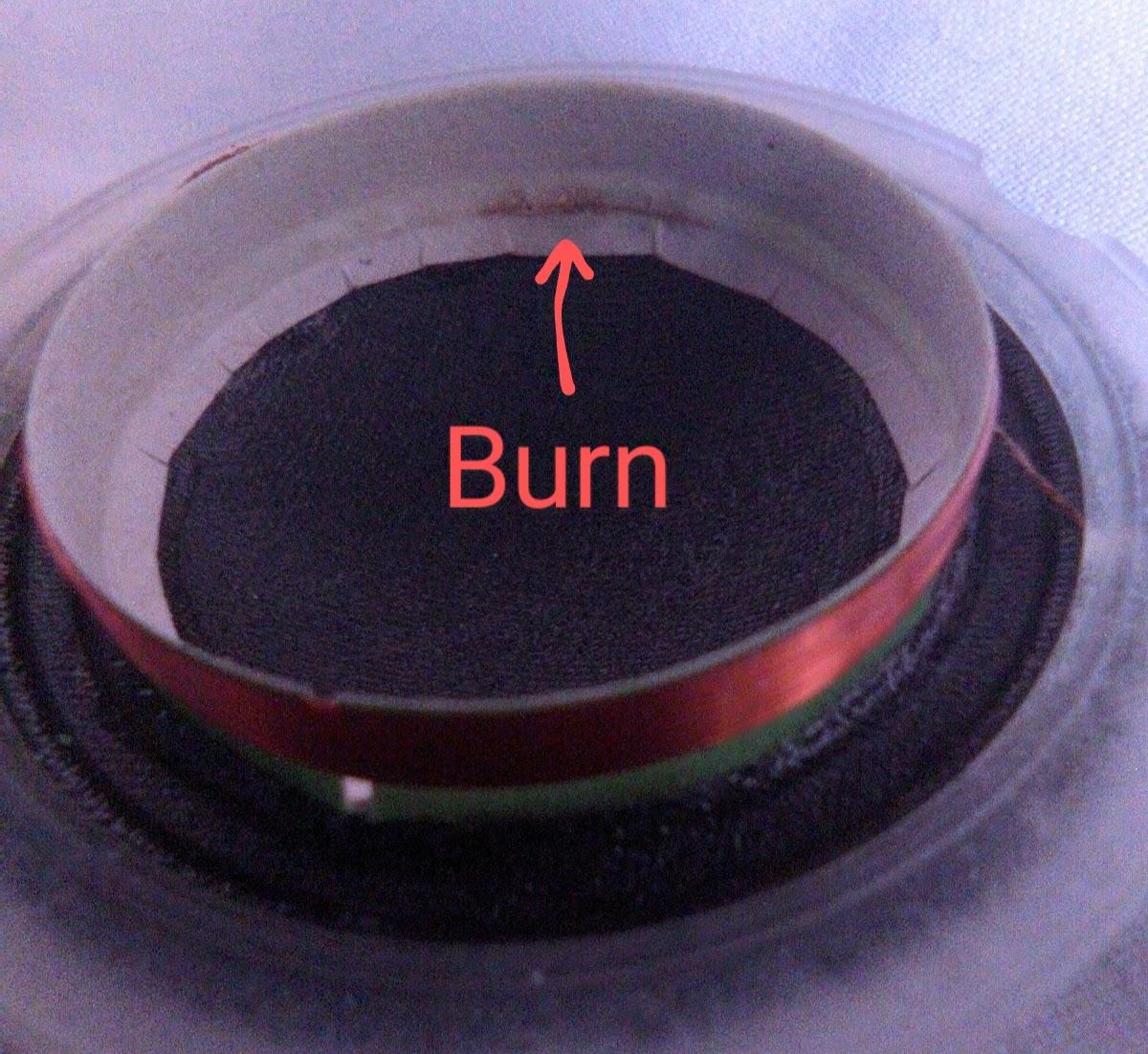
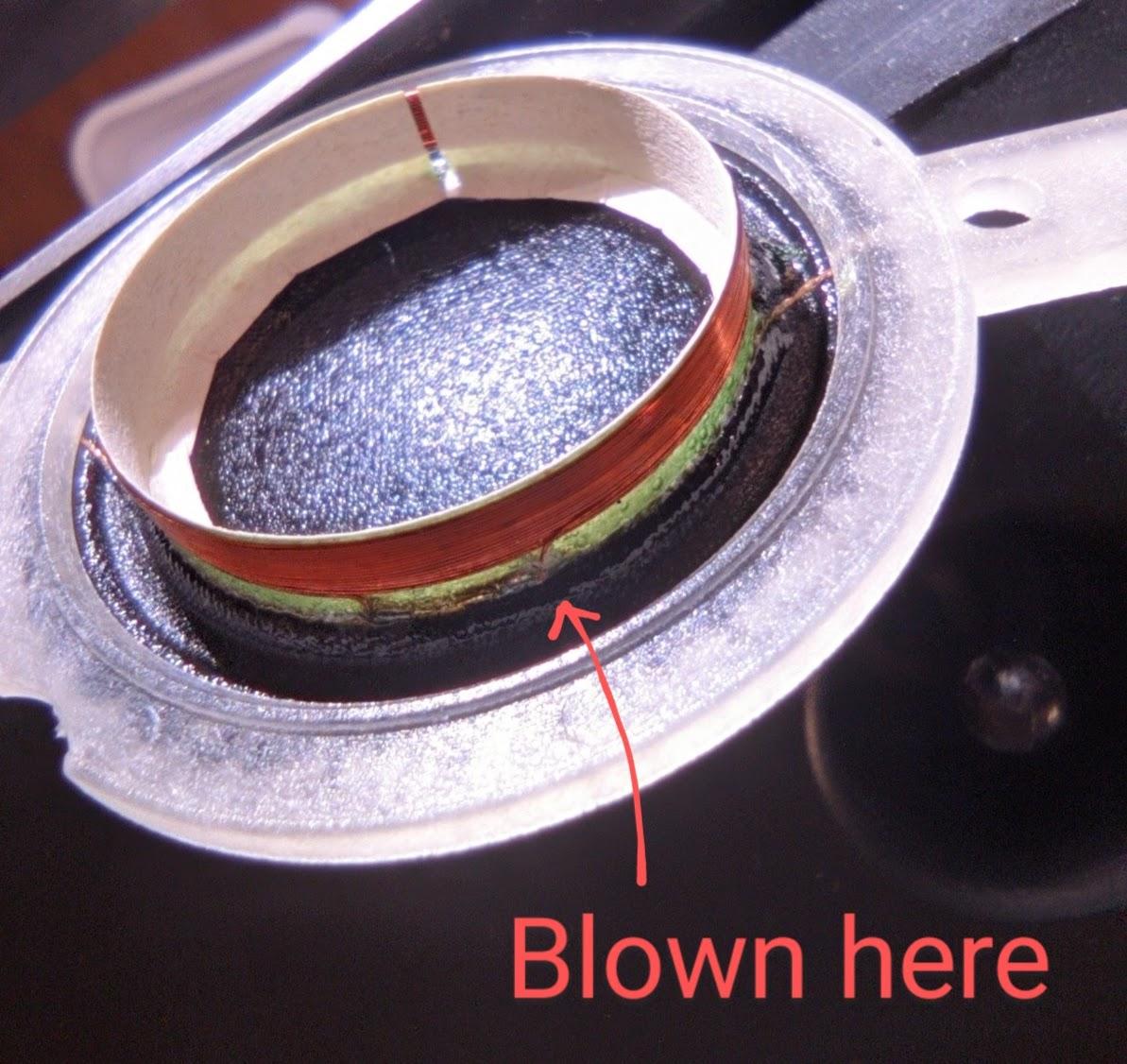
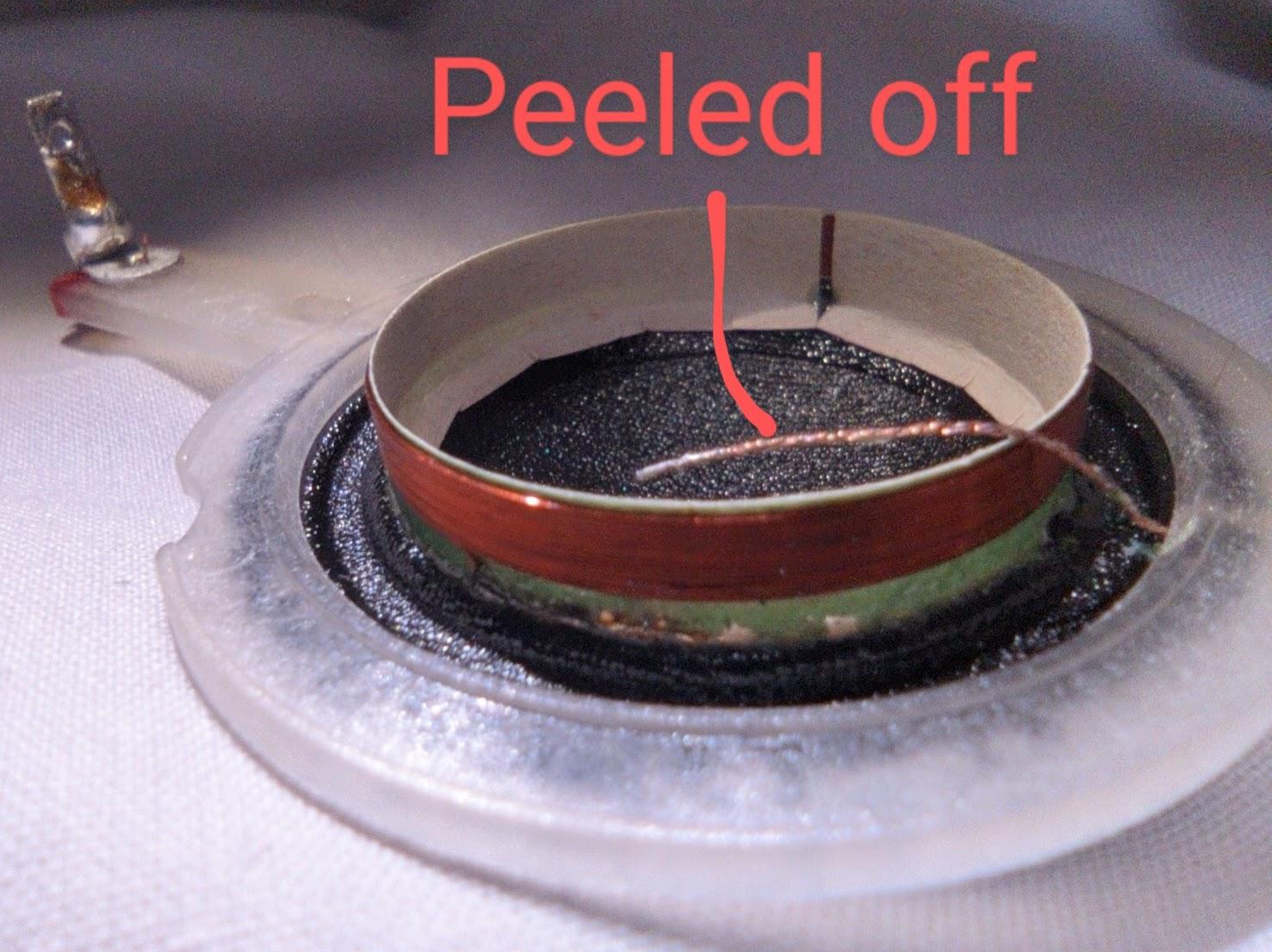
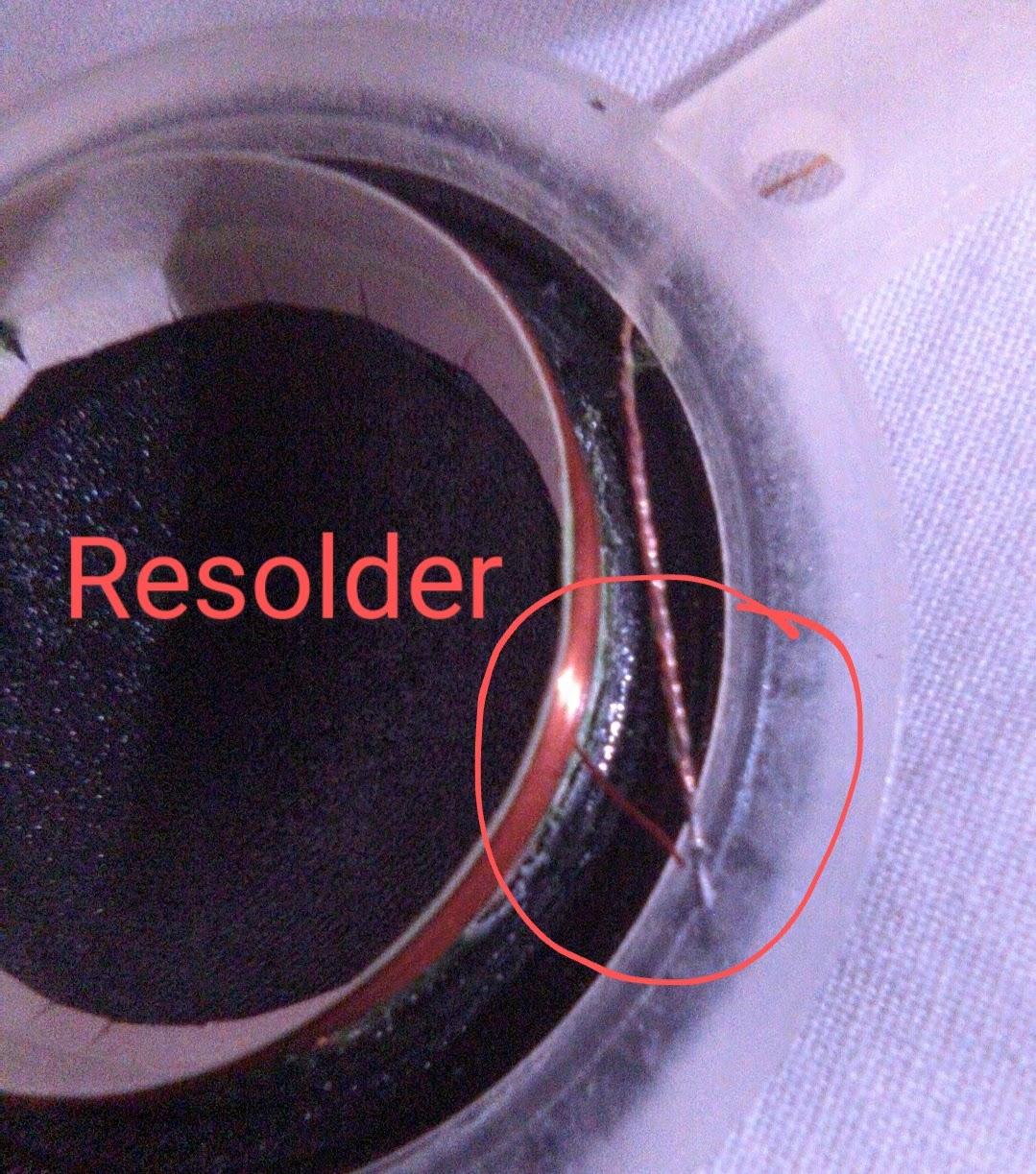
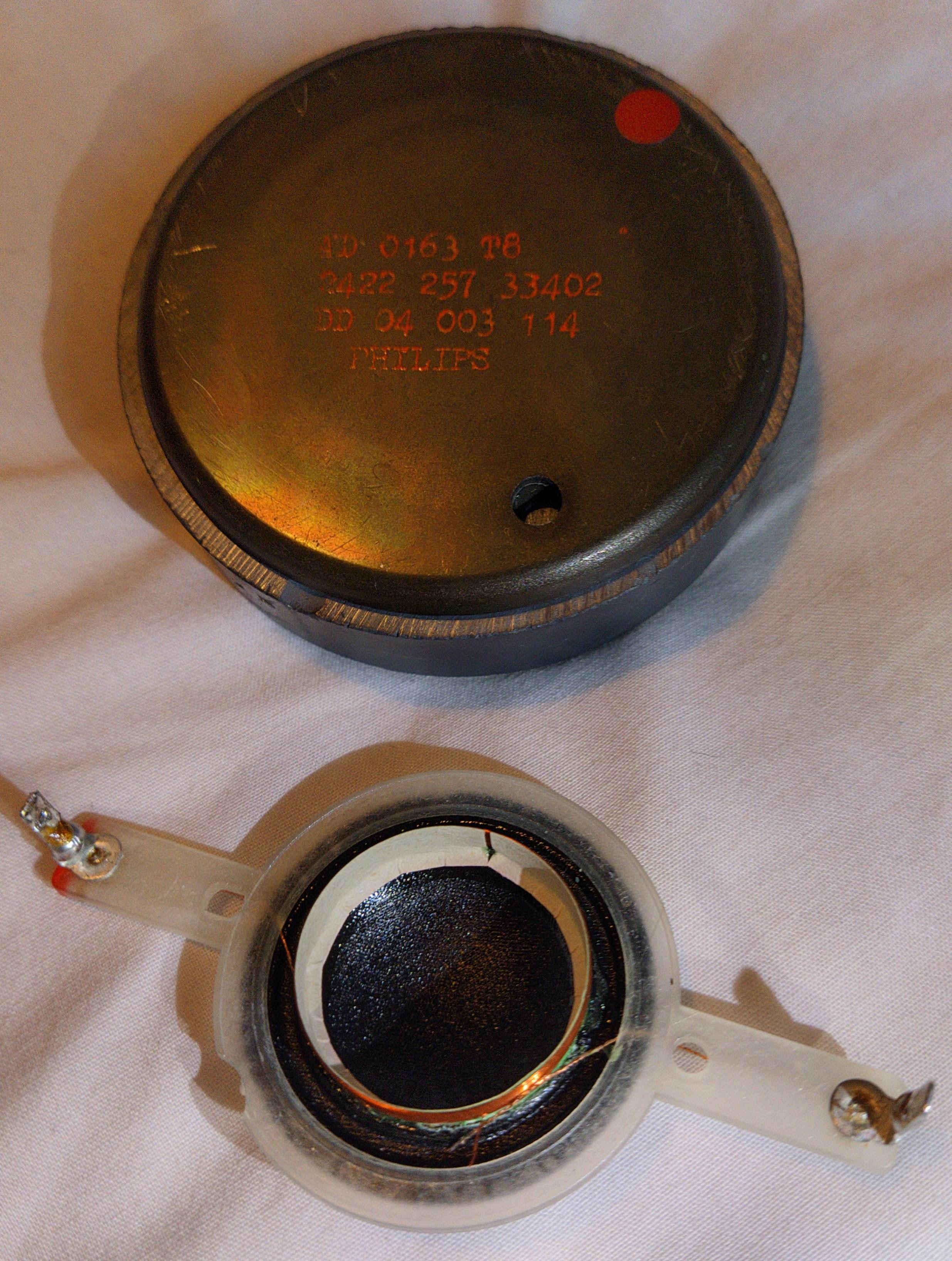
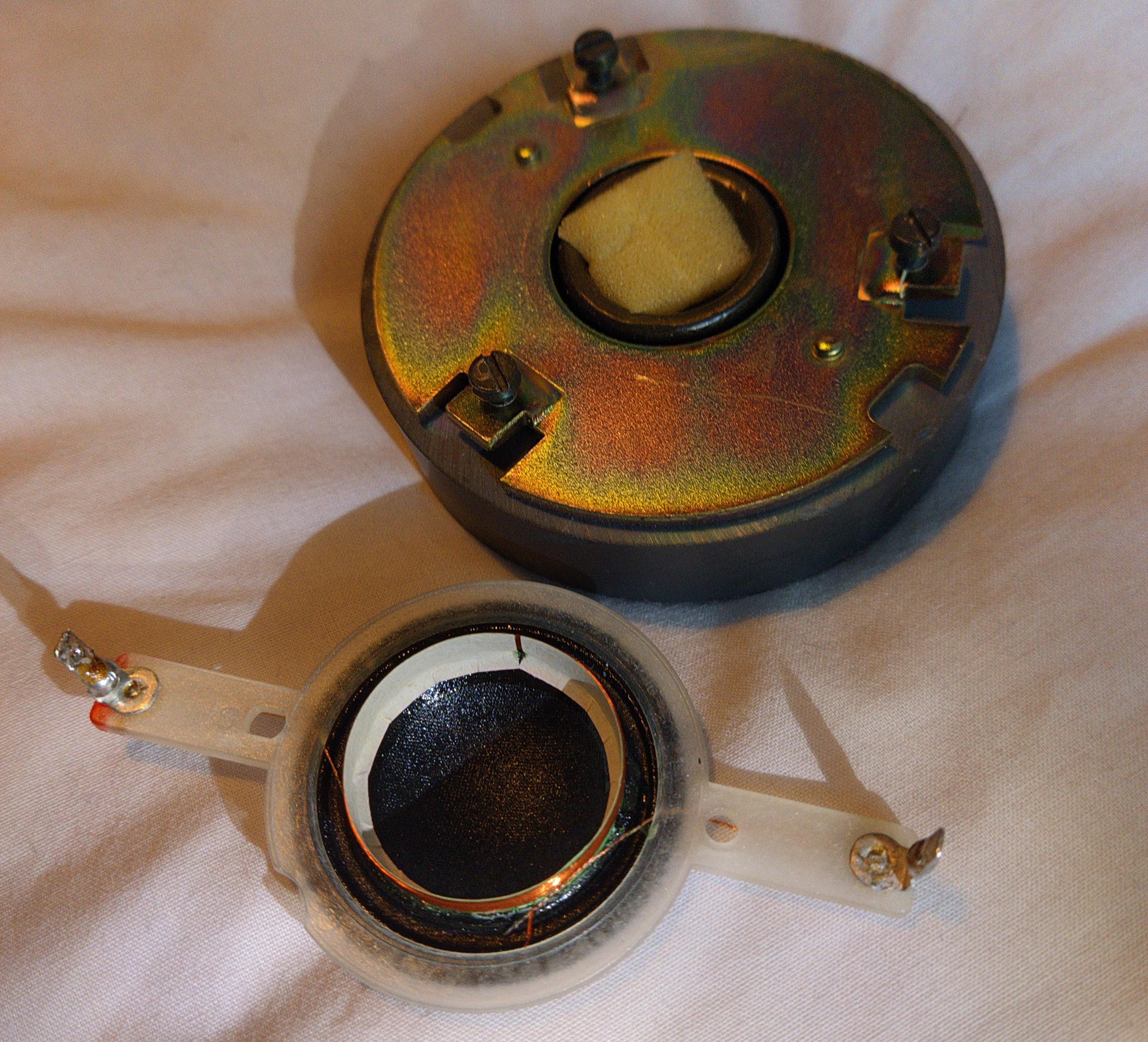
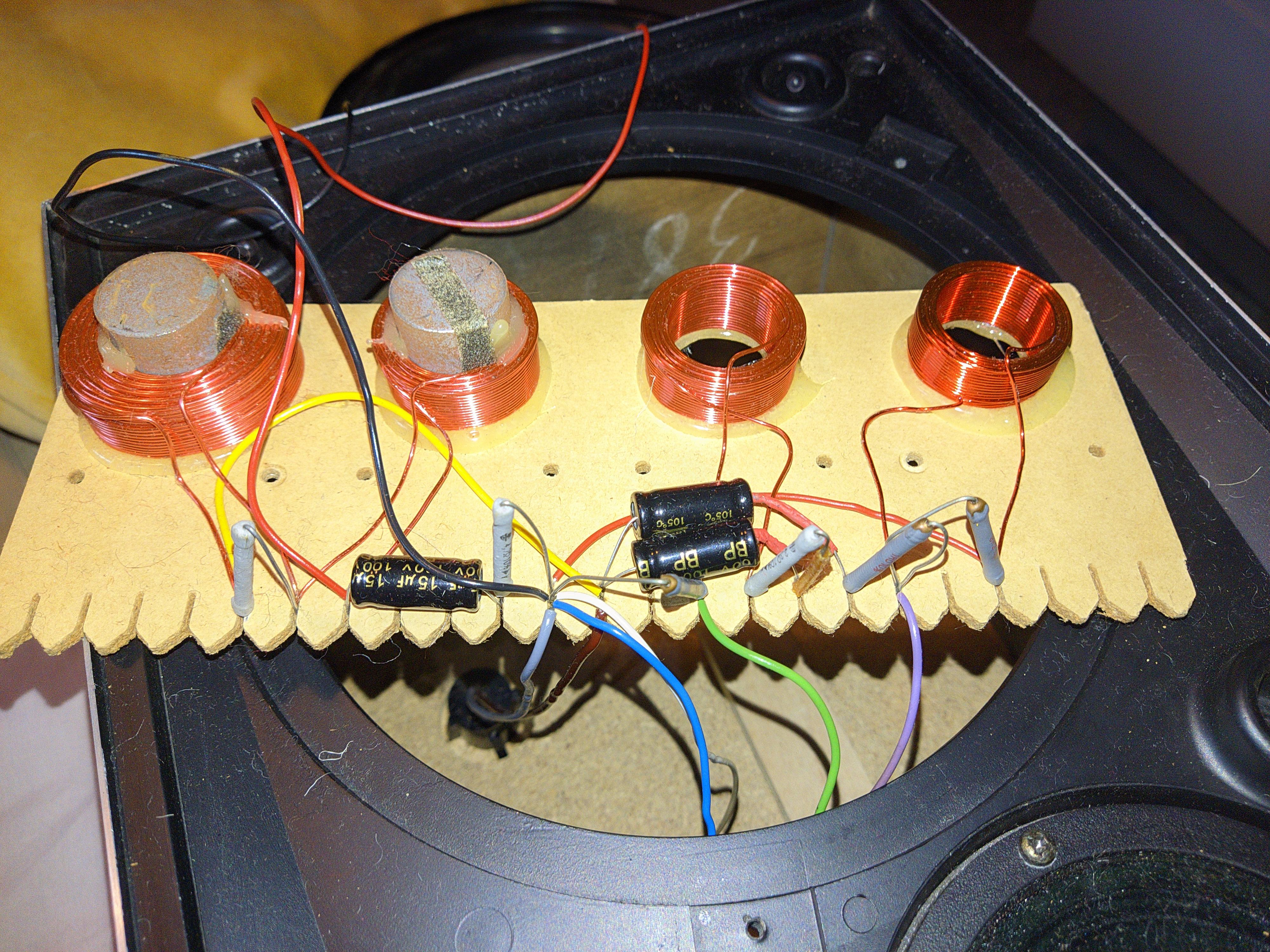
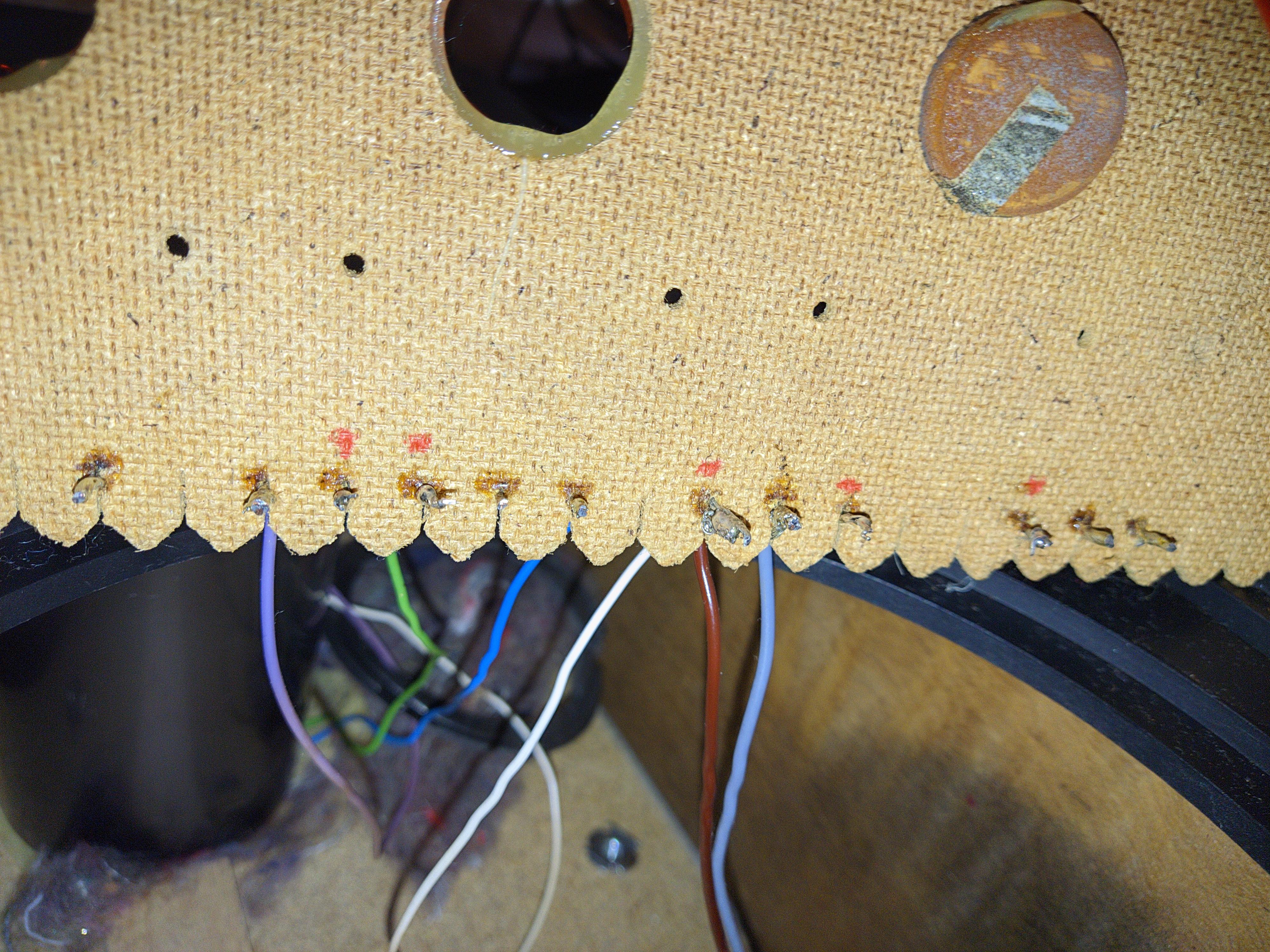
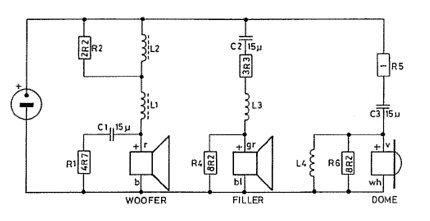 23 August 2022 at 06:55 #37131
23 August 2022 at 06:55 #37131That type of damage is typically caused by overheating which can be the result of any of the following or in combination:
- clipping an amp into the speaker
- if the series capacitor, C2 was too large or shorted
- if the parallel resistor, R6 is open.
24 August 2022 at 20:15 #37132Thanks for getting back to me.
It’s very helpful to know which components are most likely to be causing the issue, because I don’t want to desolder any that I don’t have to and risk applying excess heat to them.
All of the capacitors are 15μF to match the originals. I just want to check – did you mean to say series capacitor C3? Because C2 appears to be in series with the filler rather than the tweeter.
I will check R6 after the capacitor, because no heat was applied to it in the soldering process so I think it is less likely to be the issue.
-
AuthorPosts
- You must be logged in to reply to this topic.






